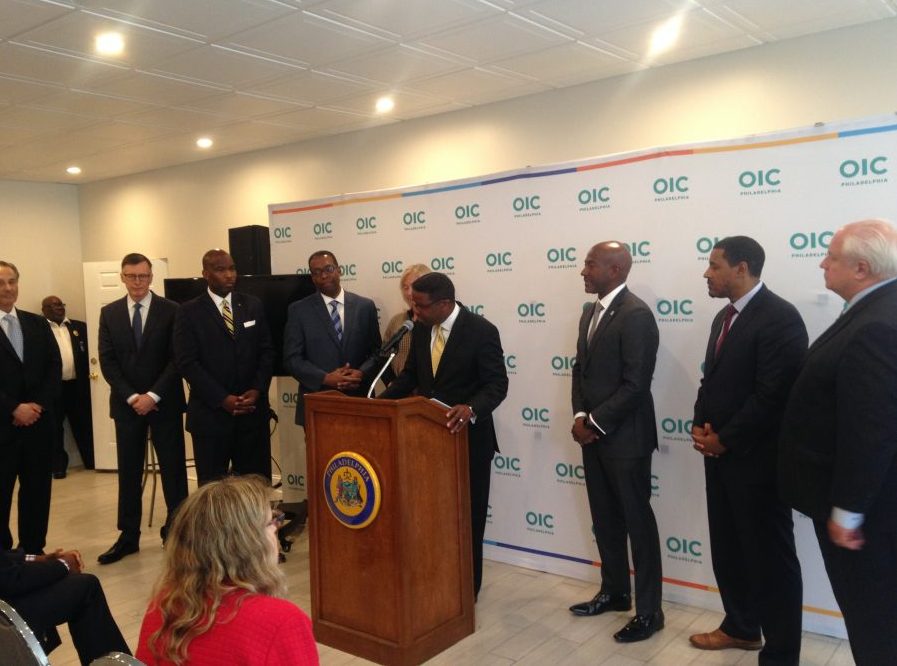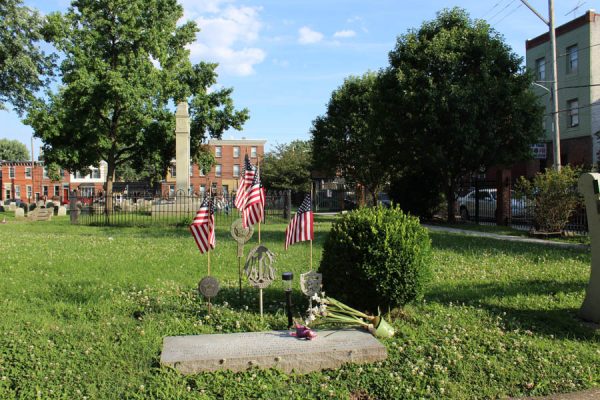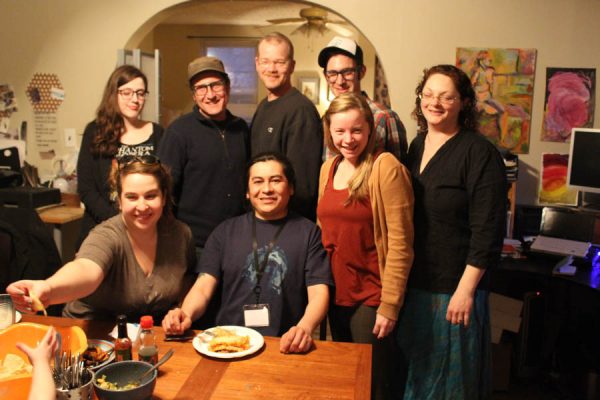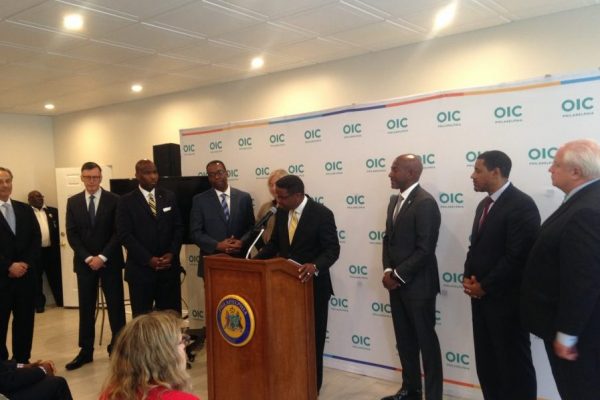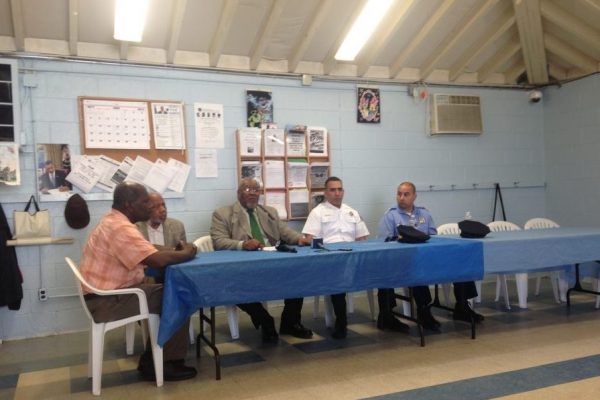Credit Deserts Plague Low Income Neighborhoods, But Options Are Available
On Thursday, June 8th, leaders from the City and The Philadelphia Opportunities Industrialization Center (OIC), a workforce enhancement non-profit, came together to unveil BankWork$’s arrival to Philadelphia.
BankWork$ is a free two month skills training program designed to catapult poor young people to successful financial careers.
“Banks offer family-sustaining jobs that people can be proud of,” said Councilman Derek Green, an attendee of the ceremony.
“Neighborhood banks are integral to communities,” he added.
In addition to providing jobs to low income Philadelphians, a hoped for side benefit of BankWork$ is that program graduates will bring their knowledge about sound financing to their neighborhoods.
Low and moderate income areas suffer from significant under banking in Philadelphia, according to the Communications Director for Philadelphia City Council Jane Roh.
“A lack of convenient access to traditional, well-regulated banks does exact a cost on communities,” she said.
While parts of Center City have banks on every block, the neighborhood of Brewerytown, for example, appears to have only one, Wayland Temple Baptist Federal Credit Union.
According to Roh, deregulation of the banking sector by Congress has allowed banks to focus on profitability in the past few decades, at the expense of a presence in low income neighborhoods. “As traditional banks left lower-income communities, higher-cost and often predatory alternatives moved in,” she said.
Such credit alternatives, like payday lending and check cashing, are costlier to low-income residents than traditional banking is to those of higher income, and “that’s backwards and wrong,” Roh said.
Kevin Moran, Executive Director of Fairmount CDC, said that “different banks have different appetites to reach out to LMI [low to moderate income] areas.”
Moran, amongst other duties, fills the breach by helping small businesses on the quickly developing West Girard Avenue get access to healthy credit.
Some of the businesses he works with operate on an all cash basis, or craft tax reports to make it seem as though they have never made a profit for tax payment reasons. These practices, which deprive stores of a solid credit history, can make it hard to access capital, compounding the dearth of local banks in the first place.
There are non-traditional lending options Moran helps bridge to businesses like these. Kiva City Philadelphia, a crowdsourcing platform for zero interest short term loans, is one such organization that Moran refers businesses to.
“If we feel like they have the neighborhood on our side, we recommend them for a loan and we can help them for a crowdfunding process,” he said.
“Basically the decision process is based on reputation and their social connections moreso than, or to the complete absence of, financial performance or financial history,” he added.
Community Development Financial Institutions (CDFI’s), who have more relaxed underwriting criteria than traditional banks, are another option.
Moran also helps businesses ramp up to best practices so that they can become loan ready as quickly as possible.
No matter a businesses situation, according to Moran, “there is always a way.”
He thinks that the proliferation of predatory lending comes in part from misinformation.
“They have perceptions or feelings they won’t be able to access capital,” in a lower risk way, he said of local businesses.
Stephen Briggs, Wells Fargo’s Community Development Officer, emphasized that, at least with regards to Wells Fargo, there were banking options in LMI areas.
It offers Hands on Banking, an online resource for free financial education, and yourFirst Mortgage, a mortgage product that takes into account non traditional measures of creditworthiness like proof of having paid tuition or rent.
“A combination of education and our secured credit card product is a good way to assist customers with rebuilding their credit,” Briggs said.
